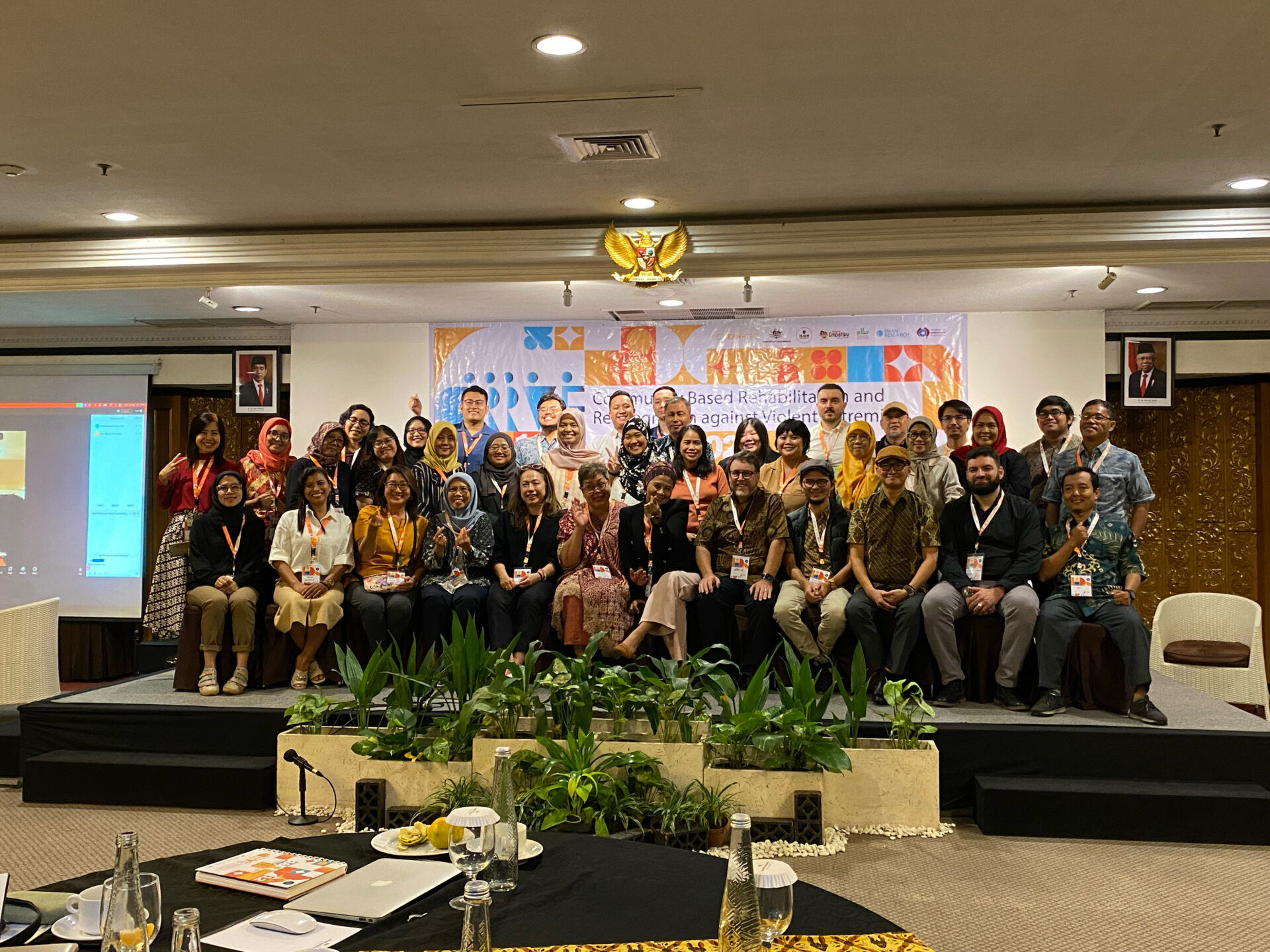On 12-15 August 2024, SEAN-CSO and the Empatiku Foundation convened a transformative workshop in Yogyakarta, Indonesia. This gathering brought together 40+ civil society organisations (CSO) representatives from six Southeast Asian countries, such as The Duajyai Group (Thailand), Initiate.MY (Malaysia), Religious Rehabilitation Group (Singapore), PeaceGeneration (Indonesia), Mindanao Peacebuilding Institute (Philippines), Australia Multicultural Foundation (Australia) and many more.
The list of participants varies, including university scholars, civil activists, creative individuals, and so on. The objective was to build capacity, exchange experiences, and share lessons on practical community-based approaches to Preventing and Countering Violent Extremism (PCVE).
Strengthening Community Resilience through Collaboration
The workshop highlighted the importance of joint efforts in ensuring that advanced interventions in PCVE adopt community-based strategies. Participants emphasised that collaboration between governments, civil society, and local communities is essential to creating sustainable rehabilitation and reintegration pathways for individuals affected by violent extremism.
Critical discussions concerned the challenges different regions face and how these shared experiences can foster new, localised approaches. The focus was clear—PCVE efforts must prioritise the people at the centre of the conflict, ensuring they have the opportunity for rehabilitation, reintegration, and personal transformation.
One of the workshop’s most valuable aspects was the diversity of experiences and perspectives shared by participants. This exchange gave participants actionable insights to improve their initiatives and strengthen community resilience. It underscored the vital role of localised, community-driven efforts in effectively addressing violent extremism.
Insights, Practices, and Challenges Faced by Participants in the CRRVE Workshop
In Australia, the Northern Community Support Group (NCSG) create local initiatives to support Community-Based Rehabilitation and Reintegration focuses on:
- employment,
- education and training support,
- culturally and religiously appropriate support services, and
- social participation.
These programs are designed to address underlying factors and enhance protective factors against the risk of engaging in antisocial behaviours, including violent extremism.
Meanwhile, in Singapore, the Religious Rehabilitation Group (RRG), alongside local clerics, have established religious counselling programs supported by volunteers to engage individuals with extremist ideologies that focus on religious rehabilitation and community outreach.
These initiatives include:
- Creating offline activities with students and foreign workers
- Running online programs for youth on social media that promote diversity and self-development, drawing on religious literature.
In Indonesia, Empatiku focuses on procedures for community-based rehabilitation and reintegration in four pillars:
- Improved awareness and understanding of the risks of violent extremisms and the ability to identify early warning signs
- Established Case Management System
- Enhanced Community Social Cohesion
- Policy support and legal basis
In Thailand, Duayjai Group engages the community through projects, dialogues, and initiatives. One is engaging former combatants in community service projects, such as building schools, planting community gardens, or repairing infrastructure. Duayjay also helps to publicise these efforts to highlight their positive contributions.
In Malaysia, Initiate.MY is an organisation that gathers and proliferates data to support advocacy addressing intolerance, extremism, and terrorism in Malaysia. They also promote two-way dialogue and engagement between civil society and government to support the prevention of violent extremism (PVE) policies in Malaysia based on PVE and human rights frameworks. Lastly, they support efforts that build social resilience in Malaysian society to counter violent and nonviolent extremism.
In the Philippines, the Mindanao Peacebuilding Institute (MPI) highlighted the difficulties grappling with the complexities of violent extremism, which faces significant hurdles in implementing effective community-based rehabilitation and reintegration (CBRR) programs for former violent extremists (FVEs). These challenges are multifaceted, stemming from the socio-political landscape and the psychological complexities of the individuals involved.
An Outlook to Radicalization and Reintegration
Understanding the process of radicalisation is crucial to addressing violent extremism. Prof. Greg Barton from Deakin University also underscored the importance of social networks in radicalisation, with relationships and identity playing a pivotal role.
- Reintegration was also emphasised as a crucial part of the disengagement process. Reintegration strategies must be a key focus to ensure that former extremists are reabsorbed into society safely and sustainably.
- The Need-Narrative-Network approach was discussed as a comprehensive method for supporting the reintegration process. It combines rehabilitation efforts with community-based support to help people leave behind a malign network and ingratiate into a healthy pro-social network.
A Vision for the Future: Community-Based Rehabilitation and Reintegration
The workshop concluded with a collective commitment to advancing community-based rehabilitation and reintegration efforts. Participants recognised that, while there are no one-size-fits-all solutions, exchanging knowledge and best practices is critical to improving local interventions.
Looking forward, SEAN-CSO and its members plan to continue supporting CSOs across the region, fostering collaboration, and ensuring that PCVE policies reflect the needs and realities of communities affected by violent extremism.
Participants of the CRRVE Workshop include:
Watch the video highlights on https://www.facebook.com/reel/2480474992154053
SEAN-CSO provides a platform for civil society organisations in Southeast Asia to network and share resources. Through this network, members can support each other, share knowledge, and coordinate efforts to address the region’s social challenges. In doing so, SEAN-CSO contributes to strengthening the voice of civil society at both regional and international levels.

